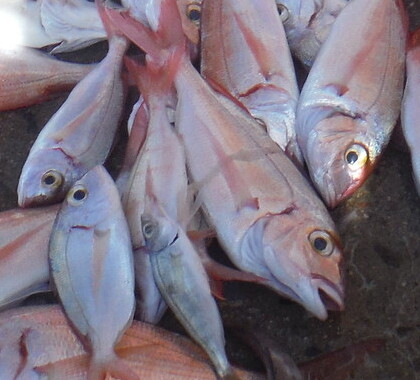The California Air Resources Board (CARB) has just amended their proposed regulations regarding commercial passenger harbor craft emission regulations that stood to remove 174 sportfishing and whale watching boats from the sea. CARB is requiring existing boat owners to replace or significantly modify existing engines to Tier 4 diesel technology. Key components of amended rules:
- Vessel owners that haven’t upgraded to Tier 3 engines already will be required to do so by January 1, 2025.
- Lower emission Tier 4 engines with Diesel Particulate Filters (DPFs) are required by 2035, This provides 12-years to comply, as opposed to the requirement starting as early as January 1, 2023.
The Tier 4 engine technology introduces bulky aftertreatment systems to meet the EPA’s heightening emissions requirements. Because of the addition of emission control technologies like diesel particulate filters (DPF), selective catalytic reduction (SCR) and exhaust gas recirculation (EGR), these engines cannot always fit into the tight engine compartments of older equipment.
CARB’s proposed regulations to Tier 4 diesel technology threatens to put the family-owned businesses of sportfishing and whale watching boats out of business. The true cost for new vessels is staggering and would require small business owners to triple ticket prices for day trips. Customer would unlikely pay the huge increases to fish or observe marine life and it would end various non-profit programs for at-risk youth and veterans.
CARB’s regulations will require major reconstruction of the boat’s hull to account for added size and mass of modified engines and exhaust systems or the vessel must be removed from service. Also, CARB’s regulations will require the number of passengers to be reduced to offset the added weight and displacement of new and larger engines and emission control systems, resulting in significantly higher ticket prices
A survey of sportfishing boat owners concluded that if the regulations are adopted California’s sportfishing fleet would be non-existent within the next 3-6 years, denying millions of California families and tourists’ access to recreational fishing, whale watching, diving, and ocean educational activities. The analysis also reveals unintended consequences for the state’s economy, fishery and conservation programs and significant declines in fishing participation rates. Hardest hit would be low-income communities
CARB’s drafted regulations for Tier 4 diesel engines to clean up emissions in California’s backyard appears like Newsom’s efforts to continuously decrease in-state crude oil production and rely on foreign suppliers to meet the oil demands of the state. Newsom’s strategy has the state dependent on the maritime sector for importing foreign oil that adds, every year, more than twice the annual GHG emissions than the entire Californian transportation sector!
CARB has failed to understand that the most important fact about today’s environmental movement, and what the 2022 Pulitzer Prize nominated book “Clean Energy Exploitations – Helping Citizens Understand the Environmental and Humanity Abuses That Support Clean Energy, explores is that the healthy and wealthy countries of the United States of America, Germany, the UK, and Australia representing 6 percent of the world’s population (505 million vs 7.8 billion) could literally shut down, and cease to exist, and the opposite of what you have been told and believe will take place.
Simply put, in these healthy and wealthy countries, every person, animal, or anything that causes emissions to harmfully rise could vanish off the face of the earth; or even die off, and global emissions will still explode in the coming years and decades ahead over the population and economic growth of China, India, Indonesia, Japan, Vietnam, and Africa.
China (1.4 Billion), India (1.36 billion), Indonesia (270 million), Japan (126 million) and Vietnam (80 million) plan to build more than 600 coal power units, and African countries (1.2 Billion) are planning to build more than 1,250 new coal and gas-fired power plants by 2030.
CARB feels good that they may be saving the health of a few, at the expense of other Californians, while still maintaining their “blinders” toward millions of other fatalities internationally, as California continues to “leak” emissions and air quality responsibilities to developing countries halfway around the world. The same countries that have virtually non-existent environmental regulations nor labor controls to protect the local workers in those developing countries. CARB has shown no concern about the 11 million child fatalities internationally nor all the coal fired plants being built. Eradication of America would still see emissions exploding in developing countries. I hope the members of the CARB can sleep peacefully!
Over 80 percent of sportfishing and whale-watching vessels are made of either fiberglass or wood, according to the Sportfishing Association of California. So, each of those boats would likely need to be decommissioned and replaced with a steel boat, which is simply not feasible for most owners, the Sportfishing Association said in a press release about the proposed CARB regulations.
Boats that do not meet CARB’s standards would have little to no resale value in California, making the financing of a new boat impossible for many. Without feasible financing, many vessel operators will shut down.
Californians spend $1 billion annually to access California’s 174 commercial U.S. Coast Guard inspected sportfishing boats and support local jobs, and nearly 10 percent of California’s marine anglers are out-of-state residents, an additional source of visitor spending for coastal communities.
Higher passenger ticket prices would impact fishing participation rates, and as fishing license sales and revenue decline so would the funding for state fisheries and conservation programs. CARB seems intent on promoting shortages and inflation onto communities of lower economic means that stand to be most impacted by higher passenger ticket prices.
Nowhere in the country has a state proposed regulations that will have the practical effect of destroying offshore fishing and whale watching businesses and threatening the coastal communities that depend on them for tourism and visitor spending. This uniquely California experience will come to an end if CARB’s plans are not rejected.
First published at California Political Review.
Photo by Club Nàutic d’Arenys de Mar, Attribution 2.0 Generic (CC BY 2.0).





